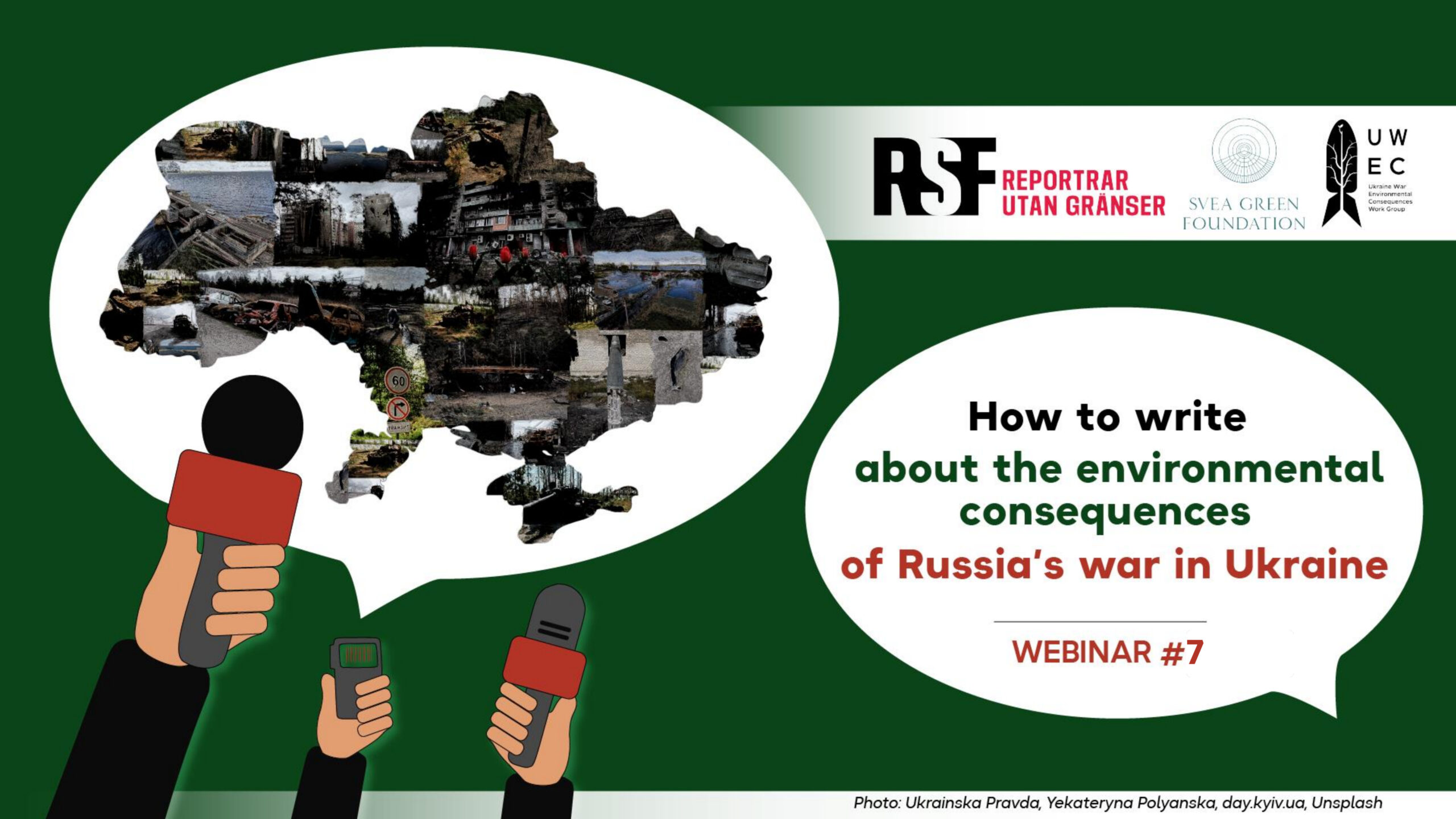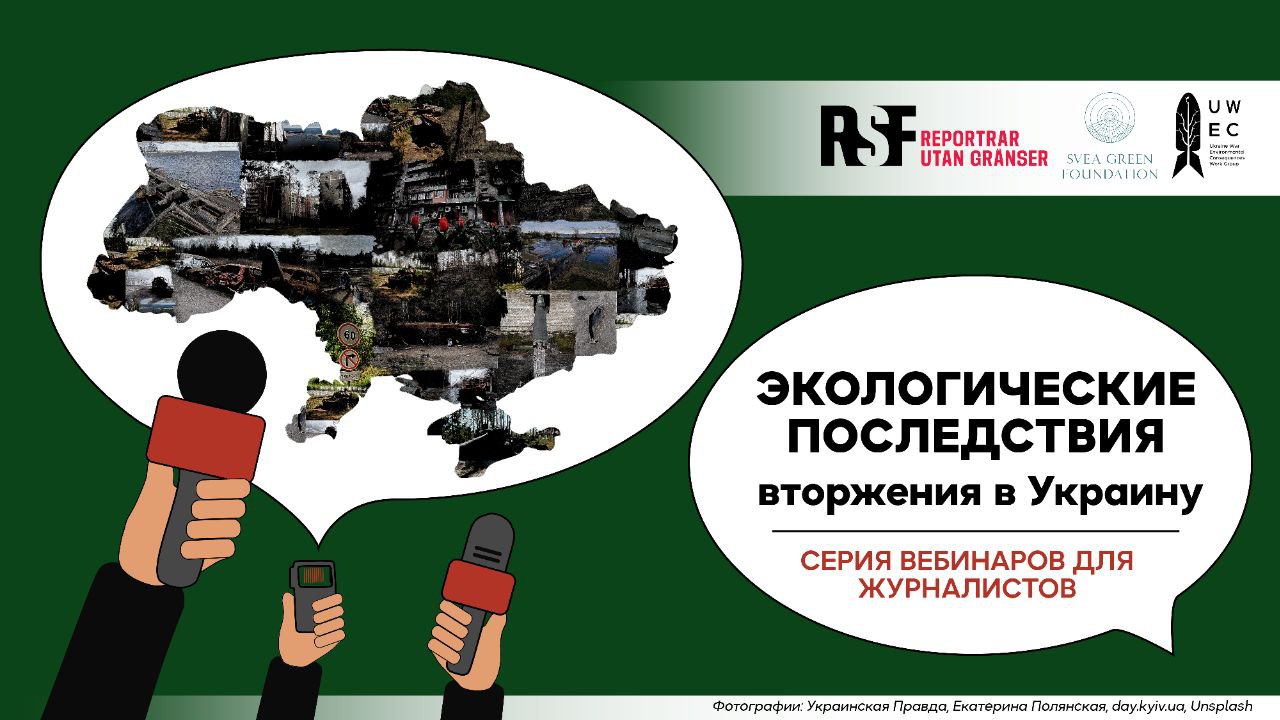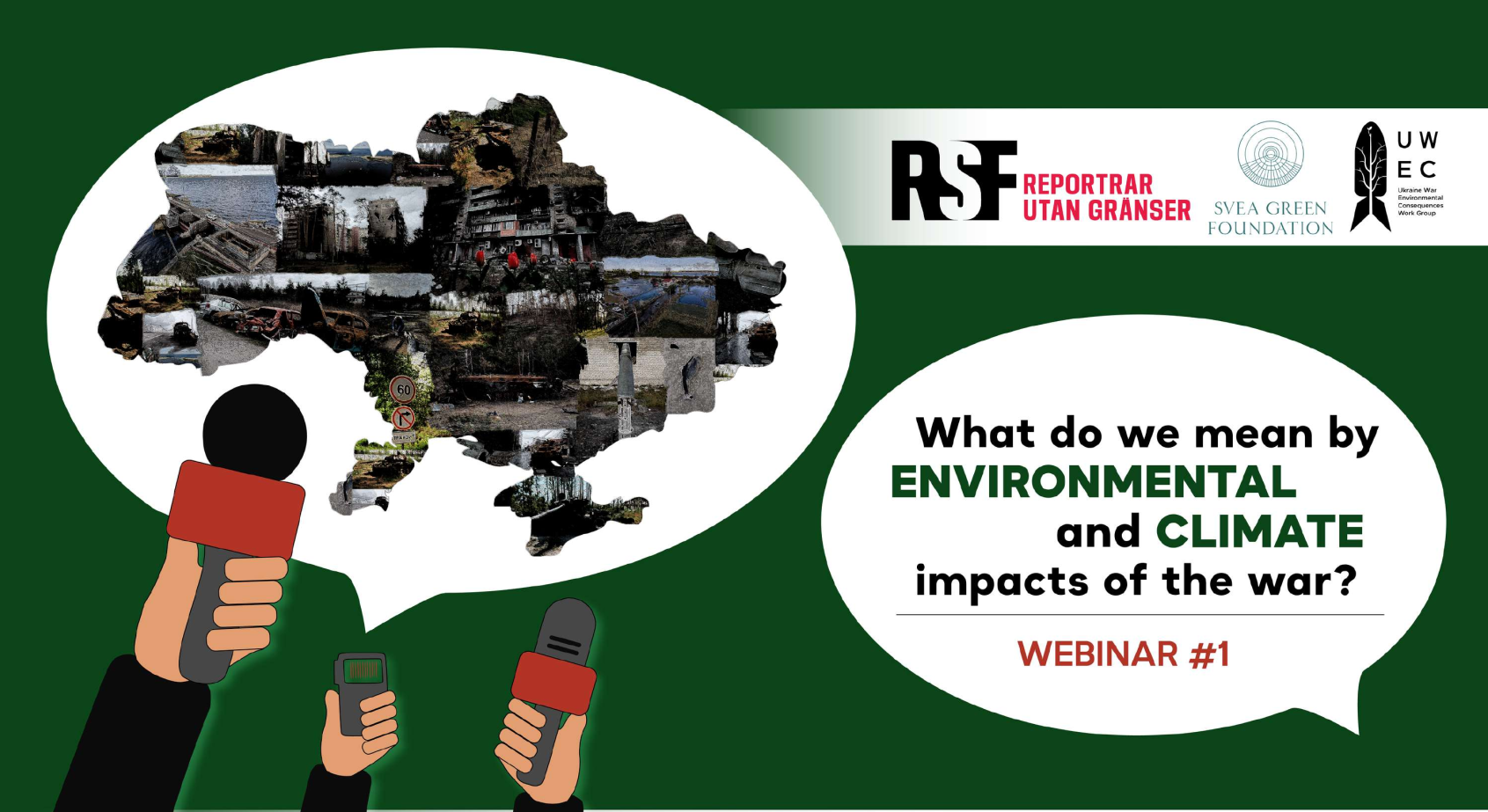The final webinar in the series “Environmental Consequences of the Invasion of Ukraine” was held on February 1. This seven-part series of webinars was organized by the UWEC Work Group in collaboration with Reporters Without Borders and the Svea Green Foundation.
The seventh webinar focused on the collection and verification of information about the environmental consequences of Russia’s invasion of Ukraine, and also examined some important aspects of working in Ukraine that international journalists should consider.
- Alexej Ovchinnikov, editor-in-chief of the UWEC Work Group and a participant of Green Network, talked about the search for online information about the environmental consequences of military action, potential sources of information, and the possibilities for verification. He also suggested possible new topics that have yet to be covered in detail in international media.
- Viktoria Hubareva, a Ukrainian environmental journalist who has written articles for Rubrika Online Media Solutions, Green European Journal and UWEC Work Group, and is the woman behind the projects “Biosphere Reserves of Ukraine: Stories of War and The Bravery of Conservationists”, also took part in the webinar. She talked about working “in the field”, the difficulties that journalists encounter while working in combat zones, the nuances of gathering information and the current rules for getting accreditation to work in Ukraine.
The seminar will be useful both for journalists working in Ukraine and for those wanting to create materials remotely.
The presentations in English are available to view here:
Webinar recording:
In English:
In Russian:
Thanks also to Coalition Clean Baltic for its underwriting of simultaneous Russian<>English interpreting during the webinar series.








Comment on “UWEC Work Group webinar: How to write about the environmental consequences of Russia’s war in Ukraine”